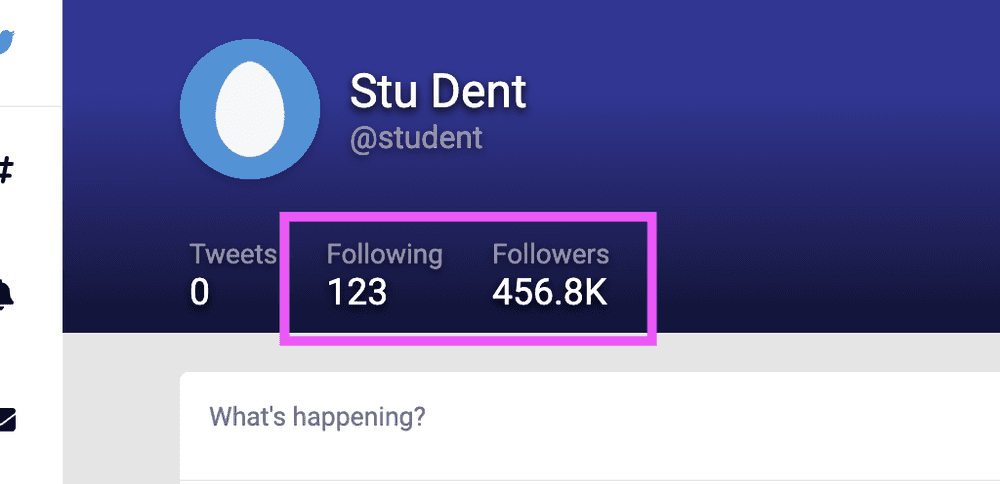Schema changes
Open schema.graphql and add the following types
graphql
and make the following changes
diff
diff
Run yarn codegen in both the client and server folders to generate updated TypeScript types.
Context Cache
We also need to set up some caches in our context object, to avoid the N+1 DB query problem.
Open server/src/apollo-server.ts and make the following change
diff
and in your server/src/resolvers.ts add these new fields to the TwitterResolverContext interface
ts
Resolvers and nested types
Create a file for simple “DB representation” -> “GraphQL representation” transforms server/src/transforms.ts
ts
In your Query resolver, server/src/resolvers/Query.ts add an import to your “transforms” file
ts
and a tweets function that uses it. Note that we’re using our cache objects
ts
Now use Apollo Explorer to try and run this query
graphql
Note that all the tweet.author fields have a null value, as does the currentUser.stats field.
We can address this with inner resolvers
Inner resolvers
Create a new User resolver module server/src/resolvers/User.ts
ts
and a Tweet resolver module server/src/resolvers/Tweet.ts
ts
Wire these resolvers up in your server/src/resolvers.ts file
diff
Consume it in the UI
We’re going to make two frontend changes.
Current User Stats
First, in client/src/App.tsx, add a new “stats” part to the GET_CURRENT_USER GraphQL operation
diff
This should allow you to pass the currentUser value through to the Header component
diff
Now you should see non-zero “follower count” and “following count” numbers for the currently logged in user
Tweets
Open client/src/Timeline.tsx and add the following imports
ts
add a new query in top-level module scope
ts
Because we created a new operation, we’ll need to run yarn codegen within the client sub-project again
to get the new type information.
Within this component, before it returns, add this
ts
And now instead of mapping over the fixture data array, use the data that the GraphQL API returns
diff
You can delete the TWEETS array if you like, we don’t need it anymore.
You should see some new tweets in the feed now!
